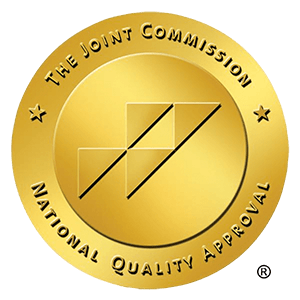People who live through traumatic events often experience both short- and long-term effects that can impact nearly every aspect of their lives. Depending on their symptoms, they may have post-traumatic stress disorder (PTSD), a condition that can be debilitating. Fortunately, there are many treatment options for those with PTSD that can help them significantly reduce their symptoms and improve their overall quality of life.
What Is PTSD?
Post-traumatic stress disorder is a type of mental illness that develops after experiencing a shocking or traumatic event. Some people experience only short-term symptoms — such as fear, nervousness, or guilt — that goes away after a short period.
People who develop PTSD experience trauma symptoms over the long term. They may have difficulty functioning in the same way they did before the traumatic events or series of events. Their symptoms will often worsen and may severely impact their quality of life, especially if they don’t seek treatment from a mental health professional.
People at the highest risk of PTSD include:
- Emergency workers
- Members of the military
- Sexual abuse victims
- Domestic abuse victims
- Those who experience the traumatic loss of a loved one
PTSD Symptoms
Every person with PTSD will experience symptoms differently. Some people experience PTSD symptoms soon after the traumatic event, while others don’t display symptoms until years later. These symptoms are grouped into four distinct types:
Intrusive Memories
People who deal with intrusive memories may experience:
- Ongoing distressing memories of the event
- Intense flashbacks that make you feel like you’re going through the event again
- Nightmares about the trauma
- Physical and emotional reactions that remind you of the traumatic event
Avoidance Behaviors
People with PTSD may avoid:
- Thinking or talking about their trauma
- People, places, or activities that serve as reminders of the traumatic event
Mood Changes and Negative Thinking
Some with PTSD may experience:
- Feelings of detachment
- Relationship difficulties
- Emotional numbness
- Hopelessness
- Negative self-thoughts or negativity regarding others or the world in general
- Loss of memory around the traumatic event
- A lack of interest in previously enjoyable activities
Emotional and Physical Reactions
PTSD can cause people to:
- Feel shame or guilt
- Frighten or startle easily
- Be hyper-aware of their surroundings
- Have trouble sleeping
- Engage in self-destructive behavior, such as the excessive use of alcohol or drugs
- Become easily irritable, angry, or aggressive
- Have difficulty concentrating
How PTSD Affects People’s Lives
PTSD can have very serious negative effects on both relationships and work. People with PTSD might avoid family gatherings because they don’t feel anyone understands them, or they may feel penned in when in large groups. They may lose focus or become easily triggered at work, leading to poor performance and potential job loss.
Regular routines that affect both family and work can also be disrupted. A person who has been in a serious car accident may find themselves unable to get in a car if they developed PTSD as a result of their experience. A victim of workplace violence may have difficulty working outside of their home.
Just living their daily lives is difficult for people with PTSD — as well as their loved ones. Negative thoughts and feelings of detachment, shame, or guilt make it difficult to carry on conversations with friends and family. Being emotionally detached or short-tempered can have negative effects, especially on relationships with children.
Coping With and Treatment For PTSD
Each person has their own experience with PTSD and their own path toward treatment. Local or online support groups can help people find others who are experiencing PTSD. These groups can help a person with PTSD feel comfortable opening up about their experience. Supporters in these groups may also offer advice on how to go about daily life and avoid triggers.
People with severe cases of PTSD should seek therapy with a mental health professional. In some cases, family therapy can be helpful as well. The goals of PTSD therapy include:
- Teaching coping skills
- Improving symptoms
- Restoring self-esteem
Based on the individual’s experience, there are several ways that mental health professionals treat people who develop PTSD. This may include talk therapy, stress therapy, and medication.
Talk Therapy
It can be extremely hard for people with PTSD to talk about their experiences. They will often avoid doing so for fear of reliving the event. A mental health professional will guide the discussion to help people with PTSD talk about their experiences and triggers in a way that makes them feel comfortable.
Stress Therapy
PTSD symptoms can have a domino effect. It starts with a stress reaction caused by a memory of the traumatic event or a sight, smell, or another trigger. Learning to deal with this stress can help people avoid shutting down or lashing out, and it can make them feel more comfortable in group settings again.
A mental health professional may teach people with PTSD to deal with stress through breathing exercises and relaxation techniques. They may also recommend massages or engaging in relaxing activities they enjoy.
Medication
Doctors treating PTSD may prescribe several types of drugs, depending on symptoms. These include:
- Anti-anxiety medications
- Antidepressants
- Medications to help with sleep
How Can Loved Ones Help With PTSD?
Feelings of anger, frustration, and helplessness are not limited to the person experiencing PTSD. Those same feelings can easily arise in their family members.
Understanding and support are the main ways to help someone with PTSD. Loved ones can offer to go to therapy sessions or doctor visits, but should also understand if the person needs to go it alone, especially at first. Just talking might be exactly what someone with PTSD needs.
Family members should also encourage contact with others. A person struggling with PTSD may be tempted to shut themself in, so it can take some work to help them get back into their daily routines and relationships.
The most important thing for people to do if they want to help someone with PTSD is to learn as much as they can. The websites for the National Institutes of Health and the National Center for PTSD offer valuable information.
Getting Help
People with PTSD need and deserve a caring team of professionals who understand PTSD symptoms and treatment, and who can provide help in a comfortable, supportive setting. The team at Core Recovery is ready to help you or your loved one deal with the stress, anxiety, and other symptoms that come with PTSD. We offer individualized assessment, education, medication management, and outpatient programs (IOP, PHP) that give people experiencing PTSD a chance to enjoy a better quality of life.


